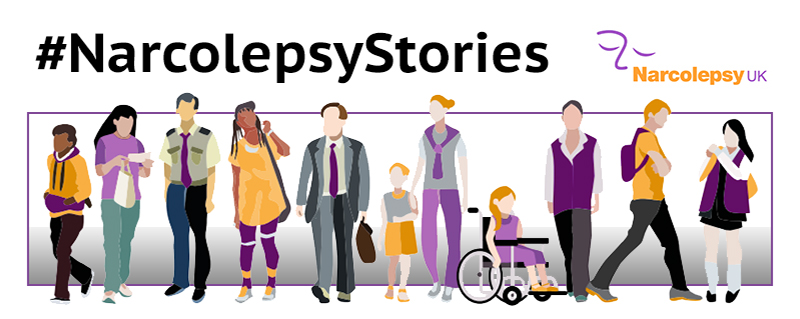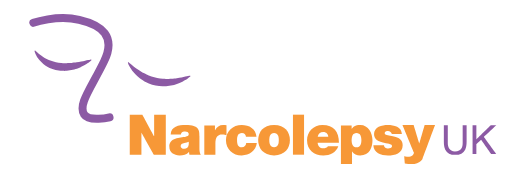11th September 2020
When walking home after a full day at university, I began to notice my knees buckle for a split second and there was nothing I could do. In that moment, it felt as if my whole body was about to give way; then the next thing I knew I was completely fine. I had just started my fourth year studying chemical and process engineering, the workload was high and beginning to get the better of me. At home, I might try to watch a film, but would be overwhelmed by a need to sleep and be unconscious within the first five minutes. During these early months, my sleep at night was very fragmented, and I began to experience regular sleep paralysis.
Early diagnosis and access to medication will only become possible when there is greater awareness of the condition in the medical world and in wider society
I wasn’t getting the sleep my body needed and, struggling to complete assignments in what was the most important year of my degree, I went to see my GP hoping for an explanation of what was going on. At this point, what I now know as cataplexy had resulted in two full collapses and I was worried. Over the next three weeks, I saw three different GPs but each was perplexed and unable to answer my many questions. When eventually referred to a neurologist, he said he suspected narcolepsy but would have to rule out other possibilities and complete an overnight sleep study to confirm the diagnosis that would open the way to medication. I decided to postpone my studies to give time for all these tests so that I might pick up my studies in the next academic year. After ruling out a brain tumour and sleep apnea, I finally got a date for my sleep study at the end of March 2020. But two days before the appointment, the COVID lockdown meant this had to be deferred. I am still awaiting diagnosis a year-and-a-half after being referred to the neurologist and with the start of the new academic year, I am concerned that I will not be returning to college as planned.

From the initial onset of symptoms that started in 2018, my quality of life has quite severely decreased. I used to be a very keen footballer. I had played from an early age and at university I was training two days a week, going to the gym and playing two games every week. The cataplexy symptoms, which were particularly strong in a match, made all this impossible. Giving up football has been difficult to process. I have played for teams such as Deveronvale FC, Buckie Thistle FC, the North of Scotland Schools and trialed for Aberdeen FC and Scotland Schools, and to have had this taken away from me has been pretty hard to take. Unable to exercise properly, I have probably put on about six stone in as many months. I am no longer able to drive and because of the cataplexy I have lost confidence when meeting new people. I just want to get my diagnosis sorted and am hopeful that with the right medication I can return to being the active individual that I was before the onset of my symptoms.
My story underscores two of the core rights set out in the Narcolepsy UK Charter: the right to an early diagnosis and the right to maximise quality-of-life. The information on the Narcolepsy UK website with regards to symptoms, diagnosis, what medication can help, what can be done to best help manage the symptoms and improve sleep hygiene has helped me and my family massively. Reading that other people with narcolepsy and cataplexy have similar problems with regards to diagnosis has highlighted that I am not alone on my journey, but it hurts to think of someone having to deal with the severe tiredness and cataplexy for years on end. My experience shows that many GPs still have little or no idea what narcolepsy even is. I do not blame them for this, but early diagnosis and access to medication will only become possible when there is greater awareness of the condition in the medical world and in wider society.


This post is part of Narcolepsy UK’s #NarcolepsyStories project, where people with narcolepsy write frankly about what it’s like to live with this debilitating disability.
Narcolepsy is a spectrum disorder that affects everyone differently. However, people with narcolepsy will always find they have a lot in common, sharing their experience of the difficulty in securing a diagnosis, the years it takes to find a suite of medications that helps combat symptoms, the effect that extreme sleepiness can have on education, work and relationships and impact that cataplexy can have on confidence.
It is our hope at Narcolepsy UK that the #NarcolepsyStories project will contribute to our vision as set out in the #NarcolepsyUKCharter to provide the respect, care and support that people living with narcolepsy and their carers deserve.
How can you help?
- Spread the word by sharing these stories on your social media channels, using the hashtag #NarcolepsyStories.
- Put your signature to the #NarcolepsyUKCharter.
- Get involved with #WorldNarcolepsyDay on 22 September.
- Make a donation to Narcolepsy UK.
- Contribute your own story to the project by sending an email to stories@narcolepsy.org.uk.
